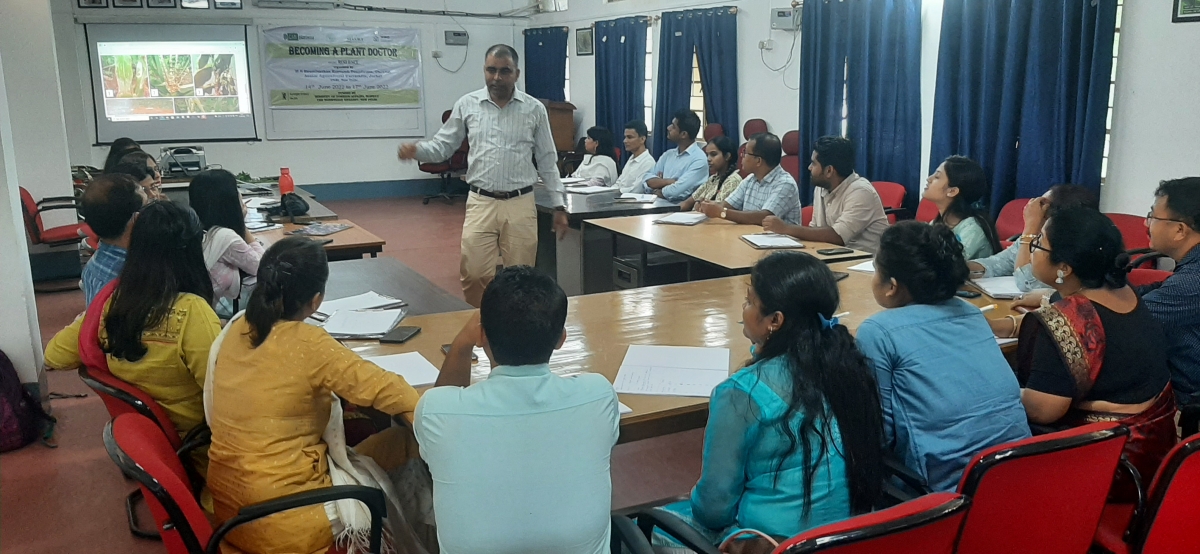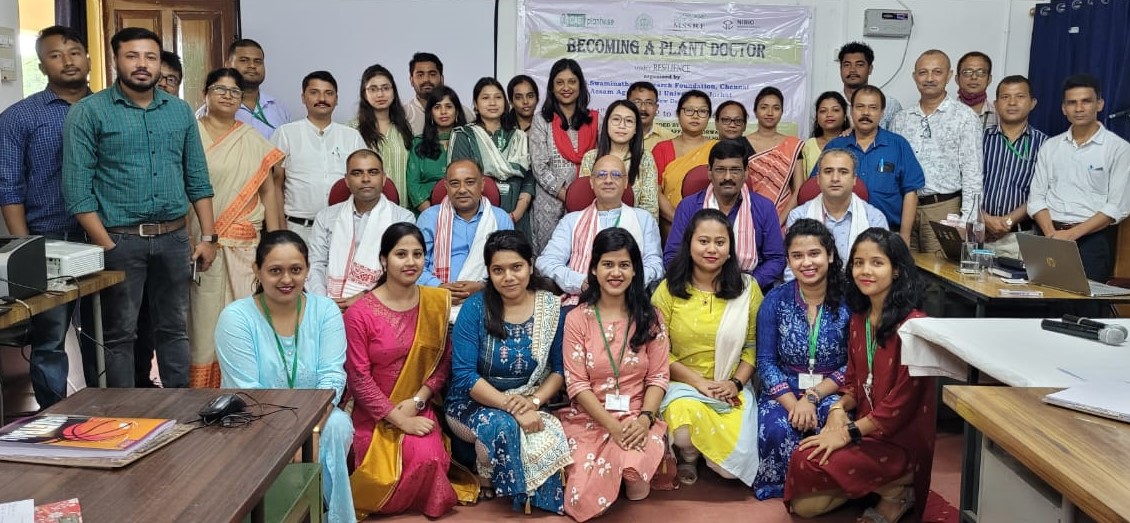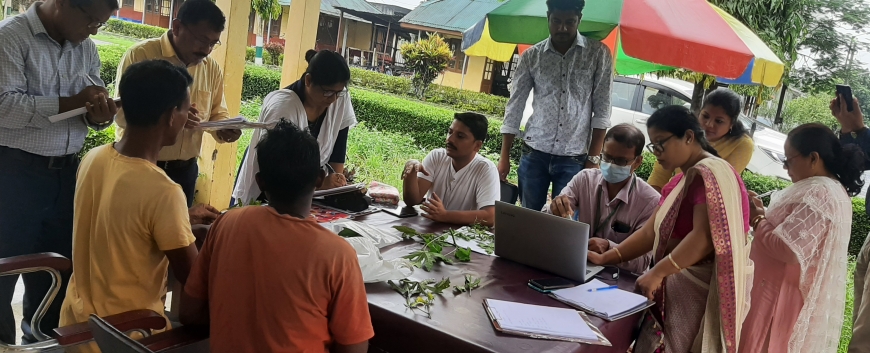Creating more Plant doctors: Upscaling the Plant Clinic initiative under the Resilience Project to build farmer’s capacity
With support from the Royal Norwegian Embassy, the Climate Resilience project is being implemented in Assam and Odisha states since October 2018. By increasing resilience and bolstering the production and value chains for the agri-product markets, the project intends to increase the agricultural productivity, adaptive capacity, and livelihoods of smallholders to climate and economic changes. Through the Krishi Vigyan Kendras (KVK) and stakeholders, efforts are being made to scale up the proven Climate-Smart Agriculture (CSA) Technologies demonstrated in the project area to other vulnerable districts. In Assam, upscaling of the CSA was initiated in 8 KVKs through the Virtual Village Knowledge Centres (VVKC). Partners and farmers recognized that the Plant Clinic is an invaluable intervention for addressing farmers' plant health issues through real-time diagnosis and advisories communicated through digital tools and in-person. Hence, the Plant clinic programme has been incorporated as one of the critical upscaling initiatives under the VVKC activities.
To promote Plant clinic interventions in the 8 KVKs, M S Swaminathan Research Foundation and Assam Agricultural University, Jorhat jointly organized a Four-day residential training on "Becoming a Plant Doctor" (Module 1 and 2) from 14th to 17th June 2022 at Regional Agricultural Research Station. The training programme was attended by 25 scientists from KVKs and AAU Research Stations. Dr Ashok Bhattacharyya, Director of Research, AAU, delivered the inaugural address. Dr R. Rajkumar, Principal Scientist, MSSRF explained the upscaling initiatives and the importance of organising the Plant doctor's training. The training program was designed and conducted by Dr Vinod Pandit, Center for Agriculture and Bioscience International (CABI), and Dr Shalik Ram Adhikari, Senior Plant Protection Officer, Nepal.


A vital goal of the training program is to enhance the knowledge management and capacity-building of the KVKs scientists and farmers in addressing plant health issues, especially in the context of increasing climate risks. Through the Plant Doctor course, KVK experts built the skills necessary to diagnose plant health problems using digital microscopes and other diagnostic tools. This enables them to provide farmer-centric, eco-friendly, affordable, and locally accessible advisories and operations. As part of their training, trainees were exposed to various crop pests and diseases (fungi, bacteria, viruses, insects, mites, etc.) through presentations, classroom demonstrations, group exercises, and practical sessions to enrich their learning.
The learners were exposed to a live plant clinic experience during the training, which provided a hands-on experience. During the feedback session, the participants expressed that the programme helped them become familiar with easy identification and early diagnosis of plant diseases. They also gained knowledge about the plant pest online management database system and how to classify infections as biotic, abiotic, or nutritional deficiencies. The extension officers added that implementing such interventions would help them to strengthen their trust with farmers. The training program was concluded with a closing ceremony and the distribution of certificates.


